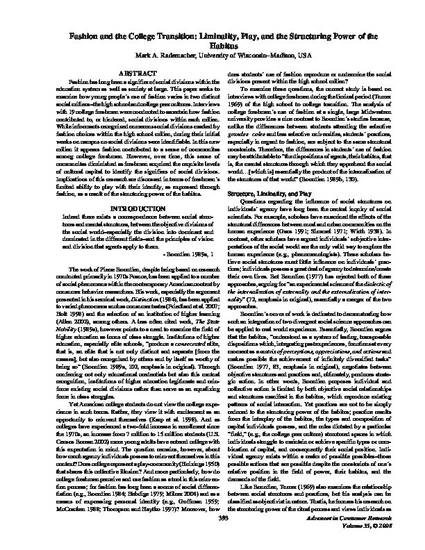
Fashion has long been a signifier of social divisions within the education system as well as society at large. This paper seeks to examine how young people’s use of fashion varies in two distinct social milieus – the high school and college peer cultures. Interviews with 19 college freshmen were conducted to ascertain how fashion contributed to, or hindered, social divisions within each milieu. While informants recognized numerous social divisions marked by fashion choices within the high school milieu, during their initial weeks on campus no social divisions were identifiable. In this new milieu it appears fashion contributed to a sense of communitas among college freshmen. However, over time, this sense of communitas diminished as freshmen acquired the requisite levels of cultural capital to identify the signifiers of social divisions. Implications of this research are discussed in terms of freshmen’s limited ability to play with their identity, as expressed through fashion, as a result of the structuring power of the habitus.
Link leads to full text provided by Association of Consumer Research.
Available at: http://works.bepress.com/mark_rademacher1/8/
